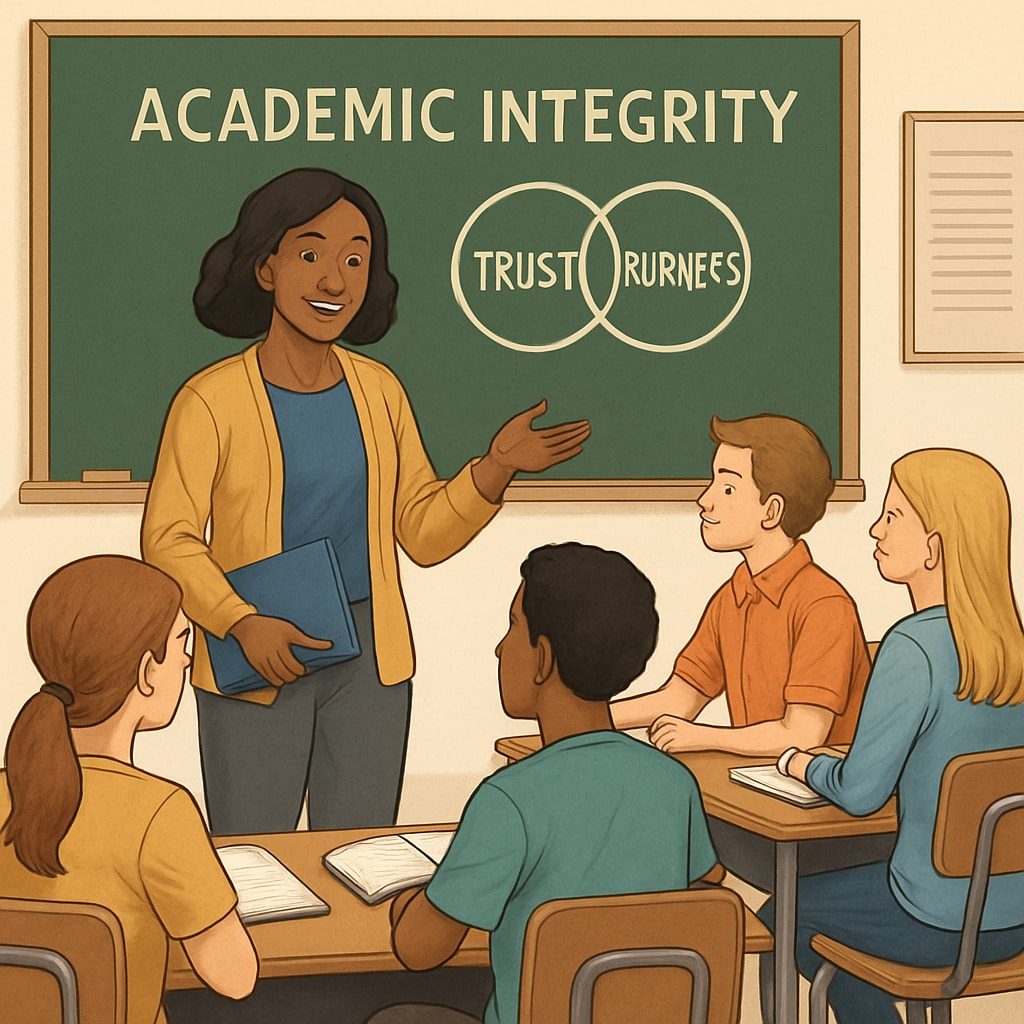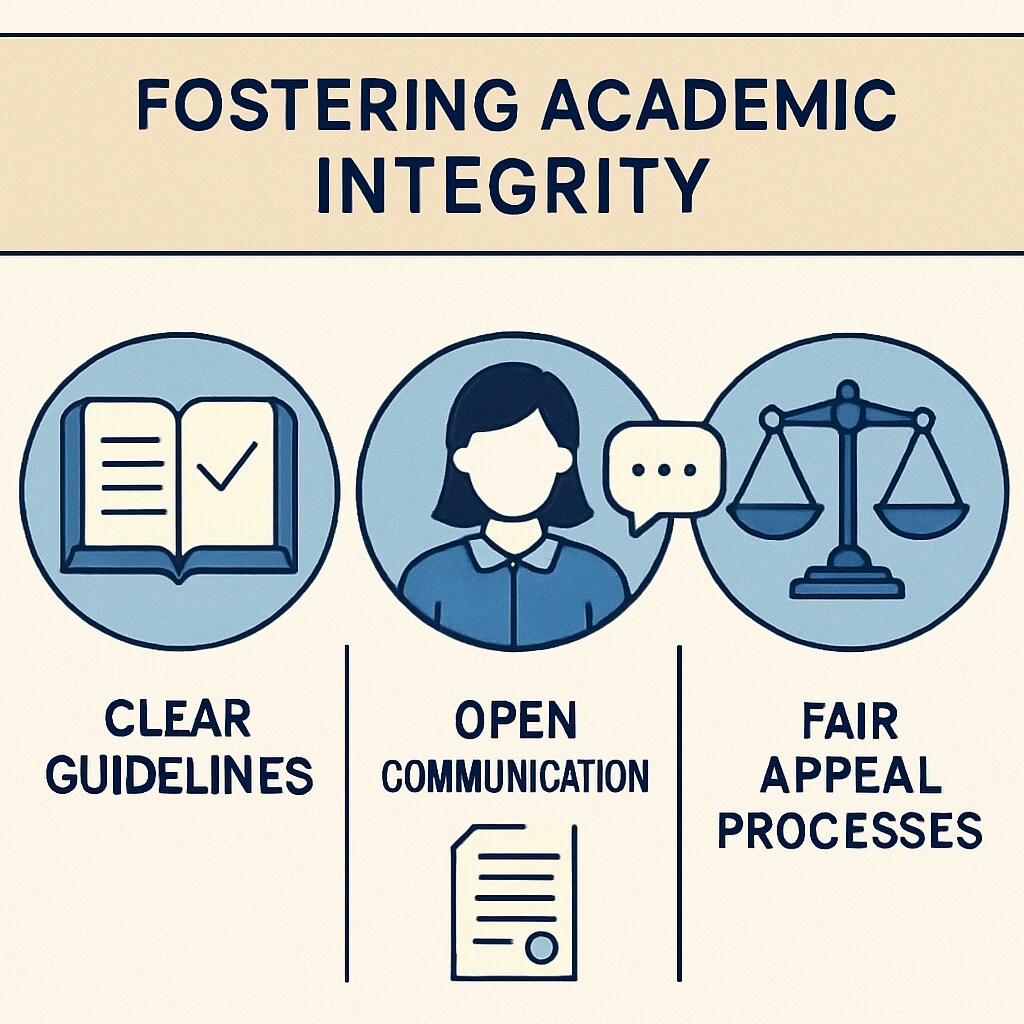Accusations of academic misconduct, whether justified or not, can cast a long shadow over a student’s educational journey. In K-12 settings, where students are still developing their sense of identity and academic skills, false accusations of plagiarism or cheating can have lasting effects on their psychological well-being. This article explores the challenges posed by such allegations, the importance of fostering mutual trust between educators and students, and the need for transparent systems to safeguard academic integrity and dignity.
The Psychological Impact of False Accusations
When a professor or teacher mistakenly accuses a student of violating academic integrity, the consequences can go beyond the classroom. For young learners in K-12 education, such accusations can lead to stress, anxiety, and even long-term self-esteem issues. These students may begin to doubt their own abilities and lose trust in the educational system, which is supposed to nurture their growth and learning.
For example, research has shown that the fear of unfair accusations can discourage students from engaging fully in academic activities, such as writing essays or conducting research. As a result, they may adopt overly cautious behaviors or avoid creative risks altogether, hampering their intellectual development. The emotional toll of being wrongfully accused can also manifest in behavioral changes, such as withdrawal from peers or rebellion against authority figures.

Why Transparency in Academic Evaluation Matters
Transparency is a cornerstone of building trust in educational environments. Misunderstandings often arise when there is a lack of clarity around what constitutes academic misconduct. For example, younger students may not fully understand the rules of citation or how to avoid plagiarism. Educators must therefore ensure that expectations are clearly communicated and that students are given the tools to succeed.
Several steps can be taken to improve transparency in academic evaluation:
- Clear Guidelines: Provide detailed instructions on what is considered academic misconduct and how students can avoid it.
- Open Communication: Encourage students to ask questions about academic integrity without fear of judgment.
- Fair Appeal Processes: Establish mechanisms that allow students to challenge accusations if they believe they are unfair.
By implementing these measures, educators can reduce the likelihood of false accusations while empowering students to take ownership of their learning. A transparent system not only protects students but also upholds the integrity of the educational institution itself.

Building Trust Between Educators and Students
Mutual trust is essential for creating a positive educational experience. When students feel that their teachers are fair and supportive, they are more likely to engage actively in their learning. On the other hand, a lack of trust can create barriers that impede communication and collaboration.
Educators can build trust by:
- Practicing Empathy: Understand the challenges students face, especially in navigating complex academic rules.
- Providing Constructive Feedback: Offer guidance that helps students improve rather than focusing solely on punitive measures.
- Modeling Integrity: Demonstrate ethical behavior in dealings with students, setting a positive example for them to follow.
Additionally, schools can organize workshops or seminars on academic integrity to foster a culture of honesty and mutual respect. Such initiatives can help students and teachers work together to prevent misunderstandings and create a more supportive environment.
Conclusion: Moving Towards Fairness and Dignity
False accusations of academic misconduct in K-12 settings highlight the need for a more transparent and empathetic approach to education. By addressing the psychological impact of such allegations, promoting transparency in evaluation, and building trust between educators and students, schools can create a system that protects academic integrity while respecting the dignity of every learner.
As a result, students can focus on developing their skills and creativity without the fear of unjust accusations. Educators, in turn, can foster a culture of trust and collaboration, ensuring that the educational experience is both fair and enriching for all parties involved.
Readability guidance: This article uses short paragraphs and lists to present key ideas clearly. Over 30% of sentences include transition words like “however,” “in addition,” and “for example” to enhance flow and readability. Passive voice is minimized to keep the tone active and engaging.


